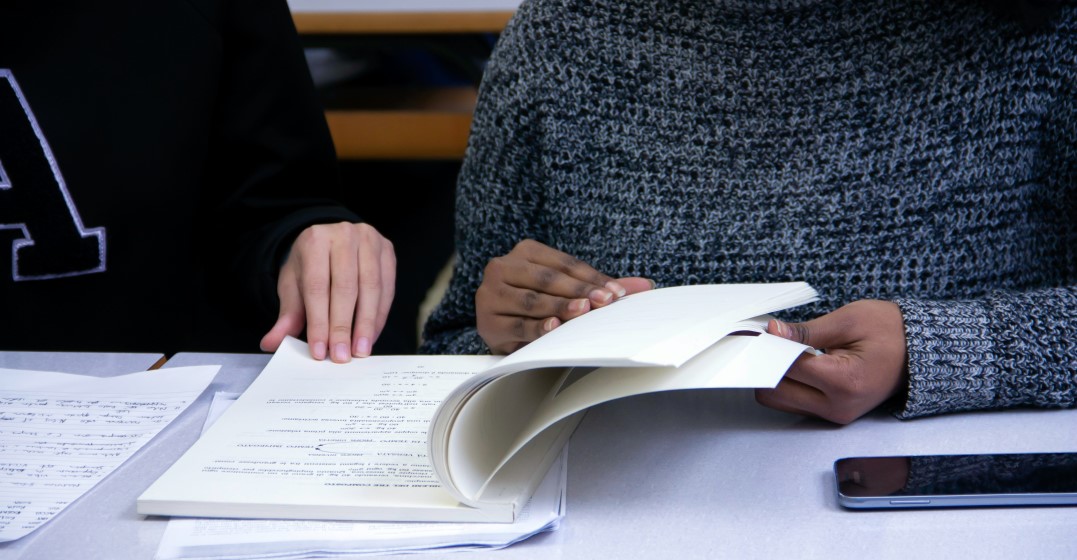Updated on November 4, 2022

How to prepare for your Spanish exam

Imagine the night before your big Spanish exam. Will you be up late, guzzling coffee, feverishly scrolling blurry-eyed through your notes? Or will you close your laptop, put away your notebook, and climb into bed feeling confident that the Spanish you need to score well is well and truly in your head?
When it comes to the best way to learn Spanish, why should you listen to me? To start with, I’m a good test-taker. I passed my Spanish Advanced Placement exam in high school on the first try. I also know tips and tricks for studying based on my own experience learning multiple languages. As a former Spanish language tutor, there are study tips that I wish my own students would follow. Here is how to prepare for your Spanish exam.
Prepare for your Spanish exam by making sure that your vocabulary is solid. I do this in a two-part process using both visual (written) study and oral (spoken) study styles. Harvard and other academic institutions support research that using multiple senses to study makes information stick in your brain.
First, comb through class notes and make a mini dictionary. Group your words by theme (question words, food, activities, verbs, etc.) and make a list. You can work in a handwritten notebook or a Word document. On the left side of the page write the word in Spanish. On the right side put the definition. Your first revision is done!
Second, test yourself by doing a mini quiz on each theme. Cover the definition side of the page. Say each word aloud. (Yes, I actually talk to myself when I study!) If you can’t recall the definition right away, highlight it or make a flashcard immediately. When you are done quizzing, go over the missed vocab. Remember: If you can’t get it without looking, then you don’t know it.
Best Spanish insults and curse words (use with caution)
Some tests have an oral response portion. If your exam doesn’t, it’s still smart to practise speaking Spanish out loud. Feel silly? Talk to a mirror, a cuddly teddy bear, or ask a classmate to quiz with you. Go over practise exam questions if you have them. Otherwise, follow my instructions for free-form oral study.
Make creative speeches from scratch. This free-form exercise cements Spanish vocabulary in your brain by forcing context. It also exercises the creative part of your brain and takes you out of the memorisation zone. Using the themes from above, try to speak for a whole minute on each topic. Make up a story! See how many vocab words you can fit into real sentences. There are no rules except that you can’t stop talking. Done? Now do three minutes. Then do five minutes.
Why should you learn a language online during coronavirus?
Spanish grammar is so specific. My best tip is to exercise your ability to contrast types of grammar using the same scenario. For example if you are studying imperfect vs. preterite in Spanish, take a simple phrase like Yo soy estudiante. (I am a student). Make contrasting sentences using the grammar: Yo era estudiante. Yo fui estudiante. Now write down in English how those phrases differ in meaning. Advanced students can explain in Spanish. This exercise works well with a study buddy.
How to write a letter in Spanish
Common mistakes are just that: common. Everybody makes them. If you specifically train them out of your Spanish learning, you will quickly become a more fluent Spanish speaker.
The Lingoda language blog is a great resource to get familiar. Our language expert bloggers write about common mistakes a lot. For example, read 4 common mistakes of using subjuntivo in Spanish or Por vs. Para in Spanish to avoid pitfalls. The Lingoda blog even has a search bar so you can filter by topic.
All about Spanish accent marks and word stress
Finally, you should be mentally fit for your exam. That means no all-nighters. Exercise and eat a balanced meal (or scarf hot cheetos like I do). Go to bed on time the night before. At the beginning of this post I asked you to envision the night before your exam. If you try your best to avoid procrastination, you will have peace of mind when you wake up on the morning of your test. ¡Mucha suerte! Best of luck from us here at Lingoda.
Want a native Spanish speaker to tutor you before exam day? Try a free 7-day trial with Lingoda and ask about study sessions today.